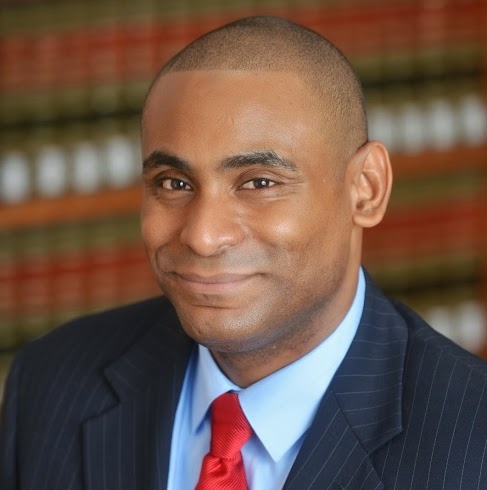Sherod Thaxton
Biography
Sherod Thaxton is Professor of Law at the UCLA School of Law, and former Faculty Director of the David J. Epstein Program in Public Interest Law and Policy. He also holds secondary appointments in the Department of Public Policy at the UCLA Luskin School of Public Affairs, and in the Departments of African American Studies and Sociology at the UCLA College of Letters and Sciences. Professor Thaxton teaches Business Crime, Capital Punishment, Criminal Adjudication, Criminal Law, Federal White Collar Crime, Habeas Corpus and Introduction to Legal Analysis. His scholarships centers on quantitative empirical legal studies, with a substantive focus on criminal law, criminal procedure, and the sociology of crime and punishment. Prior to joining UCLA, he taught at the University of Chicago Law School and worked as a public defender in Northern California.
Publications
“Race and Privilege Misunderstood: Athletics and Selective College Admissions in (and Beyond) the Supreme Court Affirmative Action Cases.” (with Uma M. Jayakumar, William C. Kidder & Eddie Comeaux). UCLA Law Review Discourse 70:230-264, 2023
“Shrinking the Accountability Deficit in Capital Charging.” Pp. 559-584 in Oxford Handbook of Prosecutors, edited by Russell Gold, Kay Levine & Ronald Wright. New York: Oxford University Press, 2021
“How Not to Lie About Affirmative Action.” UCLA Law Review 67(4):834-1021, 2020
“Metrics of Mayhem: Quantifying Capriciousness in Capital Cases.” Pp. 266-282 in The Eighth Amendment and its Future in a New Age of Punishment, edited by Meghan Ryan & Will Berry, New York: Cambridge University Press, 2020
“Reexamining the Link between Parental Knowledge and Delinquency: Unpacking the Influence of Adolescents’ and Parents’ Perceptions” (with Heather Scheuerman and Jessica Grosholz). Deviant Behavior 40(6):703-721, 2019
“When Criminal Coping is Likely: An Examination of Conditioning Effects in General Strain Theory” (with Robert Agnew). Journal of Quantitative Criminology 34(4):887-920, 2018
“Disentangling Disparity: Exploring Racially Disparate Effect and Treatment in Capital Charging.” American Journal of Criminal Law 45(1):95-166, 2018
“Disciplining Death: Assessing and Ameliorating Arbitrariness in Capital Charging.” Arizona State Law Journal 49(1):137-221, 2017
“Race, Place, and Capital Charging in Georgia.” Mercer Law Review 67(3):529-544, 2016
“Un-Gregg-ulated: Capital Charging and the Missing Mandate of Gregg v. Georgia.” Duke Journal of Constitutional Law & Public Policy 11(1):145-182, 2016
“Leveraging Death.” Journal of Criminal Law & Criminology 103(2):475-552, 2013
“Does Victimization Reduce Self-Control? A Longitudinal Analysis” (with Robert Agnew, Jessica Grosholz, Deena Isom, Heather Scheuerman, and Lesley Watson). Journal of Criminal Justice 39(2):169-174, 2011
“Do Frustrated Economic Expectations and Objective Economic Inequity Promote Crime? A Randomized Experiment Testing Agnew’s General Strain Theory” (with Nicole Leeper-Piquero, Alex R. Piquero, and Cesar J. Rebellon). European Journal of Criminology 4(1):47-71, 2009
“A General Strain Theory of Racial Differences in Criminal Offending” (with Robert Agnew, Joanne M. Kaufman, and Cesar J. Rebellon). Australian & New Zealand Journal of Criminology 41(3):421-437, 2008
“Determining ‘Reasonableness’ without a Reason? Federal Appellate Review Post-Rita v. United States.” University of Chicago Law Review 75(4):1885-1916, 2008
“The Nonlinear Effects of Parental and Teacher Attachment on Delinquency: Disentangling Strain from Social Control Explanations” (with Robert Agnew). Justice Quarterly 21(4):763-792, 2004
“A General Strain Theory Approach to Families and Delinquency” (with Robert Agnew and Cesar J. Rebellon). Pp. 113-138 in Families, Crime and Criminal Justice, edited by Greer L. Fox and Michael L. Benson. New York: JAI Press, 2000
Awards & Grants
Awards
John M. Olin Law and Economics Fellowship; Andrew W. Mellon Foundation Dissertation Fellowship; Charles E. Culpeper Foundation Fellowship; American Bar Foundation Law and Social Science Fellowship; Open Society Institute Soros Justice Postgraduate Fellowship


